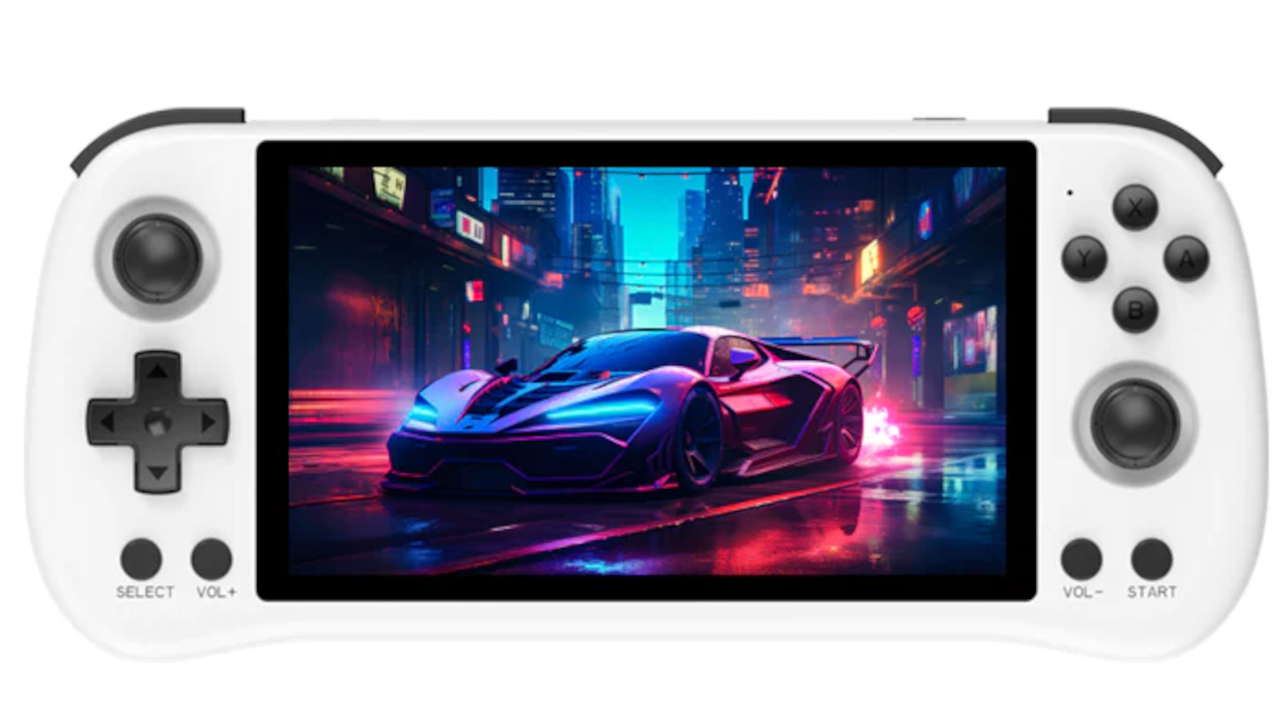Linux kernel support is being improved for PowKiddy X55, a cheap ARM gaming handheld
This could bode well for the future of other ARM-powered devices competing beneath the $399 Steam Deck

Get Tom's Hardware's best news and in-depth reviews, straight to your inbox.
You are now subscribed
Your newsletter sign-up was successful
The budget gaming handheld space is mostly ruled by the likes of the Nintendo Switch and the Steam Deck, but a number of sub-$300 ARM-powered handhelds also exist, and the PowKiddy X55 is one of them. Specifically, the PowKiddy X55 retails for as low as $90 from their website (for the 16GB base model, and on a discount from the usual $110) and starts at $145 on Amazon for a 64GB model.
Unlike most ARM-powered handhelds in this price range, the PowKiddy actually stands out by using a custom Linux distribution rather than Android, which is the usual fare for these devices. Support for the device is also being added to the mainline Linux kernel, which bodes well for both it and other devices in its class.
So, what are devices in this price range actually capable of? PowKiddy's page primarily advertises emulation capabilities ranging from early NES/GB titles all the way up to PSP, N64, and PS1 titles. Being output on the 5.5-inch 720p IPS display should also be more than enough to do these games justice, especially when enabling integer scaling for the 2D content.
But can the onboard quad-core, ARM Cortex-A55 CPU, and Mali-G52 GPU actually turn around good performance in that higher range of emulation? For the most part, yes. Consulting benchmarking from Taki Udon on YouTube, it seems like PS1 and N64 emulation are perfectly serviceable on the device.
However, sticking to native resolution for early 3D console emulation is probably best since the device chugs hard trying to run Crash Bandicoot at a 2x resolution scale. The same applies to most 3D PSP games as well, though, of course, the PSP has a much higher degree of visual fidelity than the N64 or PS1. PSP emulation via PPSSPP remains one of the best use cases for devices like this, particularly in the absence of any true PSP or PS Vita successors.
With the addition of Linux kernel support, devices like this also become particularly compelling options for use cases like Steam Remote Play and Moonlight Game Streaming— not just emulation.
Get Tom's Hardware's best news and in-depth reviews, straight to your inbox.

Christopher Harper has been a successful freelance tech writer specializing in PC hardware and gaming since 2015, and ghostwrote for various B2B clients in High School before that. Outside of work, Christopher is best known to friends and rivals as an active competitive player in various eSports (particularly fighting games and arena shooters) and a purveyor of music ranging from Jimi Hendrix to Killer Mike to the Sonic Adventure 2 soundtrack.